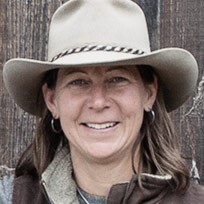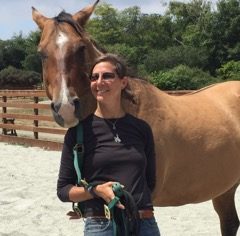Wendy Millet, Director, TomKat Ranch Educational Foundation
 Wendy Millet is director of the TomKat Ranch Educational Foundation, a cattle ranch with a mission to raise healthy food on working lands in a way that sustains the planet and inspires others to action. She has worked on ranches in Wyoming and Montana and has spent more than twenty years in conservation, including twelve years at The Nature Conservancy. She serves on the boards of the Western Landowners Alliance and the California Council of Land Trusts and is cofounder of Gallop Ventures LLC, offering equine-guided leadership programs. Wendy will be offering a leadership workshop for WEN on May 20. Read more here.
Wendy Millet is director of the TomKat Ranch Educational Foundation, a cattle ranch with a mission to raise healthy food on working lands in a way that sustains the planet and inspires others to action. She has worked on ranches in Wyoming and Montana and has spent more than twenty years in conservation, including twelve years at The Nature Conservancy. She serves on the boards of the Western Landowners Alliance and the California Council of Land Trusts and is cofounder of Gallop Ventures LLC, offering equine-guided leadership programs. Wendy will be offering a leadership workshop for WEN on May 20. Read more here.
What is the educational and career path that led to your current career?
My high school motto was “Dare to be True”. I learned early on that each person’s path is different, each person’s skill set is unique. I have always tried to follow what interests me and things that I love. I love horses and they led me to ranching and to creating my business called Gallop Ventures. I love nature and that led me to conservation where I have spent 20+ years working in all kinds of amazing places around the world. I love connecting people with nature and that got me into outdoor education. Magically, all of those things merge in my work at TomKat Ranch today.
What environmental issues are of most concern to you?
How agriculture and the environment, production and conservation go hand in hand. As you know, agriculture is the most significant way that humans interact with the planet. People need food to eat every single day. How that food is grown has tremendous impacts on the land, water, and air. Large scale agriculture has been great at getting calories to people but it has come at a cost to humans and the planet. In too many places, soil is depleted, water systems are polluted, and food, while abundant, is not as nutritious as it once was. I am hopeful that agricultural practices that mimic natural systems can become more widespread. I am hopeful that “regenerative agriculture” (agriculture that gives back nutrients to the land and supports healthy ecosystems as well), can become widespread. Many solutions are out there and being applied at small scales to benefit soil, water, air, and biodiversity. I hope we can figure out how to do that at large scales too.
Discuss any mentors that have helped or inspired you to reach your aspirations.
The mentors in my life tend to be people with deep connections to land. Some of these people connect to land as conservationists, outdoor educators, and scientists. Some connect to land through their work as ranchers, loggers, food producers. Others mentors are writers such as Ralph Waldo Emerson, Henry David Thoreau and John Muir – the early American Transcendentalist tradition, which I studied at Harvard. I have learned as much from rural people who didn’t go to high school as I have from scientists with advanced degrees. The common theme among the people I look up to is their ability to think in systems, to look at the whole and understand that the best solutions don’t come from solving for parts. The people I know with a deep connection to land and animals understand that; their wisdom comes from looking at the world as a whole and not in parts.
What do you think are some challenges and opportunities facing women in the environmental movement today?
 I am always eager to help people connect with their passions and unique contribution to the world and give voice to that. In my work with Gallop Ventures we call it “finding your stride”. The challenge I see is that the world is noisy with distractions. Given the noise, it’s hard for people to listen to themselves and trust that the quiet voices inside saying “follow your heart” are really important to hear.
I am always eager to help people connect with their passions and unique contribution to the world and give voice to that. In my work with Gallop Ventures we call it “finding your stride”. The challenge I see is that the world is noisy with distractions. Given the noise, it’s hard for people to listen to themselves and trust that the quiet voices inside saying “follow your heart” are really important to hear.
